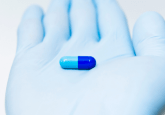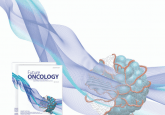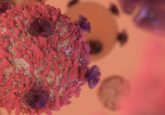Increasing access to cancer medicines: what role do biosimilar medicines play?

Could you tell us what the key focuses for the Biosimilar Medicines Group, a Medicines for Europe sector group, are at present?
Biosimilar medicines bring competition to the biologics market, which in turn creates broader access for patients and supports the best use of available resources and sustainability of the European healthcare system.
Over the last decade, we have seen the range of available biosimilar medicines evolve and grow to cover even more therapeutic areas. This demonstrates the important role biosimilar medicines play in sustainable healthcare, particularly as more individuals with chronic diseases live longer and critical innovative therapies come to market, adding an even greater cost burden to an already strained system.
The movement in the biosimilar medicines industry is due in part to:
- National policy frameworks recognizing the obvious value of biosimilar medicines which contribute to relieving pressure on budgets, ensuring better and earlier patient access as well as better use of available resources.
- Countries ensuring national focus on sustainability relative to cost-efficiency gains from the use of biosimilar medicines in conjunction with overall improvement to market access and procurement mechanisms.
- Regulatory bodies enabling competitiveness through effective and lean development and marketing authorization processes.
We have seen strong progress – but it is not enough. Despite 10 years on the market and more than 700 million patient days of experience demonstrating that biosimilar medicines match reference medicines in terms of safety, efficacy and quality, biosimilar medicines continue to face complexity for broad acceptance and use in clinical practice.
2018 is the right time to unite the five pillars of biosimilar success: patients, quality, value, sustainability and partnership. By doing so, we can achieve the promise of biosimilar medicines – earlier and broader patient access, freeing up/reallocation of important resources and increased sustainability of our healthcare system.
All these themes will be central to our upcoming Biosimilar Medicines Conference which will take place on 26–27 April 2018 (London, UK).
What have been the most significant advancements in the development of oncology biosimilar medicines over the past few years?
Biosimilar therapies in oncology have been available since 2008 [1] with several biosimilar filgrastims already in use, offering supportive care for oncology patients.
2017 was a somewhat “revolutionary” year for oncology, as Rosa Giuliani (ESMO European Society for Medical Oncology) put it [2], with the first approval of biosimilar rituximab and trastuzumab as first line therapies in the treatment of cancer. Since then, a biosimilar of bevacizumab has been authorized (in 2018) and the biosimilar pipeline in cancer therapy looks promising with candidates emerging for both primary and supportive care.
Besides biosimilar medicines authorizations per se, it is important to underline the proactivity of the physician and nursing community in this field. ESMO had released their position paper before the first biosimilar approval for use, already acknowledging the prominent role these therapeutic options would play as a “catalyst for equal access” in cancer care [3]. The European Specialist Nurses Organisation (ESNO), has also undertaken to develop a guide to accompany specialized nurses in their dialogue with patients for whom biosimilar medicines options are available.
This is particularly significant given that the patient community remains very engaged in creating and broadening the awareness and understanding of biosimilar medicines and the value they bring to overall patient care.
Could you tell us about the role biosimilar medicines play in improving access to cancer medicines?
The disparities in access to cancer medicines are well documented. They appear mainly linked to healthcare budget constraints. With biosimilar medicines as key triggers for competition and cost-effectiveness gains, there is a major access opportunity in cancer therapies to be seized.
Not only can these biologic standards of care be available for a greater number of patients, but cost-effectiveness can also lead to earlier access in the patient care pathway following the revision of treatment guidelines.
Beyond equity in access, embracing opportunities offered by biosimilar medicines can translate into even greater healthcare benefits. The re-investment possibilities in healthcare products or services are numerous and could contribute to significant improvements in often complex cancer care pathways. This can for instance mean extending access to new innovative, diagnostics (e.g. earlier detection) or an expansion to healthcare infrastructure, staff and equipment (e.g. training of surgeons, radiation equipment).
Several benefit-sharing schemes have been developed in other therapeutic areas (e.g. infliximab biosimilar in Inflammatory Bowel Disease [4]) where the benefits of using the ‘best value’ biological medicines for treatment are shared between the prescriber and the national healthcare system, translating readily into better patient care.
What do you think are the biggest challenges in the widespread adoption of biosimilar medicines and how can we overcome these?
Forty biosimilar medicines are authorized in the EU. While this represents a relatively small number of all the biological medicine authorizations, physician and hospital workforce surveys illustrate a growing awareness of biosimilar medicines. The same is observed among patient groups.
The biggest hurdle yet to be overcome in terms of education is, on the one hand, the dissemination of the legitimate and unbiased information on the matter and, on the other hand, the transfer of that knowledge and understanding into concrete adoption in clinical practice.
Dissemination is essential: there is a plethora of information one can find online, however it is not obvious for the non-expert what is fact and science based and what is hypothetical uncertainty unsubstantiated by science, anecdotal issues or partial information.
The European Commission (EC) and the European Medicines Agency (EMA) have taken leading roles in improving the suitability of available information over the years (i.e. tailored, structured content according to the level of expertise ranging from expert, specialized public and general public). Significant efforts have been put into developing translations in the official EU languages of the healthcare professional (link) and patient resources (link). The important focus will now be to ensure that these are made accessible to all stakeholders as a primary resource.
Transferring knowledge into clinical practice: increasingly, we also see workforce training targeted to nurses or hospital pharmacists, which aims to enable biosimilar medicines use in clinical practice and to facilitate healthcare professionals’ dialogue with their patients.
Acting as a bridge between science and practice, the clear positioning of regulatory authorities on the possibility to switch, under the supervision of a clinical decision maker, from any version of a medicine to another (reference product to a biosimilar version or biosimilar to another biosimilar medicine) as a reflection of the biological medicines science and experience, is also instrumental in the overall adoption of biosimilar medicines in practice.
The final challenge is ensuring that trust and understanding lead to biosimilar medicines being effectively used within healthcare systems. Concrete policy implementation measures are needed to factor in the treatment cost-efficiency gains and the full realization of the health strategy ambitions, e.g. revision of clinical guidelines or procurement procedures.
What do you think could be the timeframe for widespread adoption of biosimilar medicines?
As with any emerging category of medicine, experience equates to confidence. As healthcare systems gain more experience with these medicines and realize the benefits to patient access, the best use of resources and how they positively impact the sustainability of healthcare, usage will grow.
Additionally, the launch of a second biosimilar medicine in a therapy area typically leads to a much faster integration of the biosimilar therapeutic option in clinical practice. The benefits in terms of patient access to biological standards of care and the ability to re-invest the cost efficiency gains in healthcare products and services are an opportunity that healthcare providers must take.
In other words, the time is now. The opportunity is there to be seized.
How would you like to see the field advance over the next 5–10 years?
In the next 5–10 years, we would like to see patients have broad access to biosimilar medicines as part of clinical practice in all possible areas, including cancer, to help enable more sustainable healthcare systems.
Biosimilar medicines currently cover 60% of therapeutic areas and are an integral therapeutic option in therapy areas where they have been available for some time e.g. rheumatology and gastroenterology.
As a result of the value biosimilar medicines bring, we need to grow the availability of biosimilar medicines across even more therapeutic areas.
Through strong partnerships, decision makers can develop important policy frameworks, effective development and regulatory processes and national incentives to address the equity access challenge and mindfully impact the needs of healthcare systems, HCP, patients, and industry.
The stakes are high for cancer treatment: the disease burden is growing and innovation in the field is associated with high biological treatment costs.
With over 10 years of in-market experience, 700 million patient experience days and robust data, biosimilar medicines are proven to match reference medicines in terms of safety, efficacy and quality.
The choices we make now will affect the reality of broad patient access and a sustainable healthcare system in the long-term. The Biosimilar Medicines Conference on 26–27 April 2018 (London, UK) is a great first step in shaping this future and designing a future where the full potential of biological medicines is unlocked.
 References:
References:
[1] EMA index Accessed 30 March 2018.
[2] Biosimilar Medicines Conference 2017 (23–24 March 2017 in London, UK).
[3] Tabernero J. Biosimilars create opportunity for sustainable cancer care; European Pharmaceutical Review (2017).
[4] UK NHS Commissioning Guideline for biologic medicines – www.england.nhs.uk/wp-content/uploads/2017/09/biosimilar-medicines-commissioning-framework.pdf
Author profiles:
 Carol Lynch was appointed President, Sandoz US, Head of North America in March 2018. In this role, Carol leads Sandoz’ largest commercial and country organization – the United States – which is responsible for over 35% of Sandoz’ global revenue. Carol also oversees Sandoz’ commercial operations in Canada. She continues as a member of the Sandoz Executive Committee, having sat on Sandoz’ global governance body since her prior role, and is a board member of the Association for Accessible Medicines (AAM) in the US.
Carol Lynch was appointed President, Sandoz US, Head of North America in March 2018. In this role, Carol leads Sandoz’ largest commercial and country organization – the United States – which is responsible for over 35% of Sandoz’ global revenue. Carol also oversees Sandoz’ commercial operations in Canada. She continues as a member of the Sandoz Executive Committee, having sat on Sandoz’ global governance body since her prior role, and is a board member of the Association for Accessible Medicines (AAM) in the US.
Prior to this, Carol was the Global Head of Biopharmaceuticals at Sandoz, responsible for the development, manufacturing and commercialization of biosimilars, including its contract manufacturing. In her four years in this role, Carol grew the biopharma business reaching 1bn USD in sales annually, and delivered a portfolio with five biosimilar approvals. Under Carol’s leadership, Sandoz achieved the first approval and launch of a biosimilar in the US, and last year saw the launch of the next wave of biosimilars in the EU. With the recent announcement of the collaboration with Biocon, Carol leaves the biopharma team with the promise of continual replenishment of our pipeline. Carol also operated as the Chair of the Biosimilar Medicines Group, a Medicines for Europe sector group, and will continue to do so until her committed term is over.
Carol has more than 25 years of global pharmaceutical and generics industry experience. Prior to joining Sandoz in 2014, Carol held several Commercial and Development leadership positions in Novartis Pharmaceuticals both globally and in country organizations, including the United States.
 Erin Federman is Head of Biologics, Europe for Mylan. Erin is a senior-level, award-winning strategic marketer and problem solver with over 20 years sales and marketing experience across multiple industries and geographies. She has led strategic marketing initiatives for a broad range of biotech, pharmaceutical and technology products, from early development through launch and LOE with a particular focus on launch excellence, patient advocacy and market access. Specifically, she has led the launch preparation and roll-out of nine new medical devices (global) and three pharmaceutical assets (two global, one EU). Erin has worked for such leading healthcare focused organizations as Boehringer Ingelheim, Pfizer, Smiths Medical and Fujifilm SonoSite. She has lived and worked in the U.S., Italy, the United Kingdom and Germany. Erin is originally from Cincinnati, Ohio and is based in Frankfurt, Germany.
Erin Federman is Head of Biologics, Europe for Mylan. Erin is a senior-level, award-winning strategic marketer and problem solver with over 20 years sales and marketing experience across multiple industries and geographies. She has led strategic marketing initiatives for a broad range of biotech, pharmaceutical and technology products, from early development through launch and LOE with a particular focus on launch excellence, patient advocacy and market access. Specifically, she has led the launch preparation and roll-out of nine new medical devices (global) and three pharmaceutical assets (two global, one EU). Erin has worked for such leading healthcare focused organizations as Boehringer Ingelheim, Pfizer, Smiths Medical and Fujifilm SonoSite. She has lived and worked in the U.S., Italy, the United Kingdom and Germany. Erin is originally from Cincinnati, Ohio and is based in Frankfurt, Germany.





